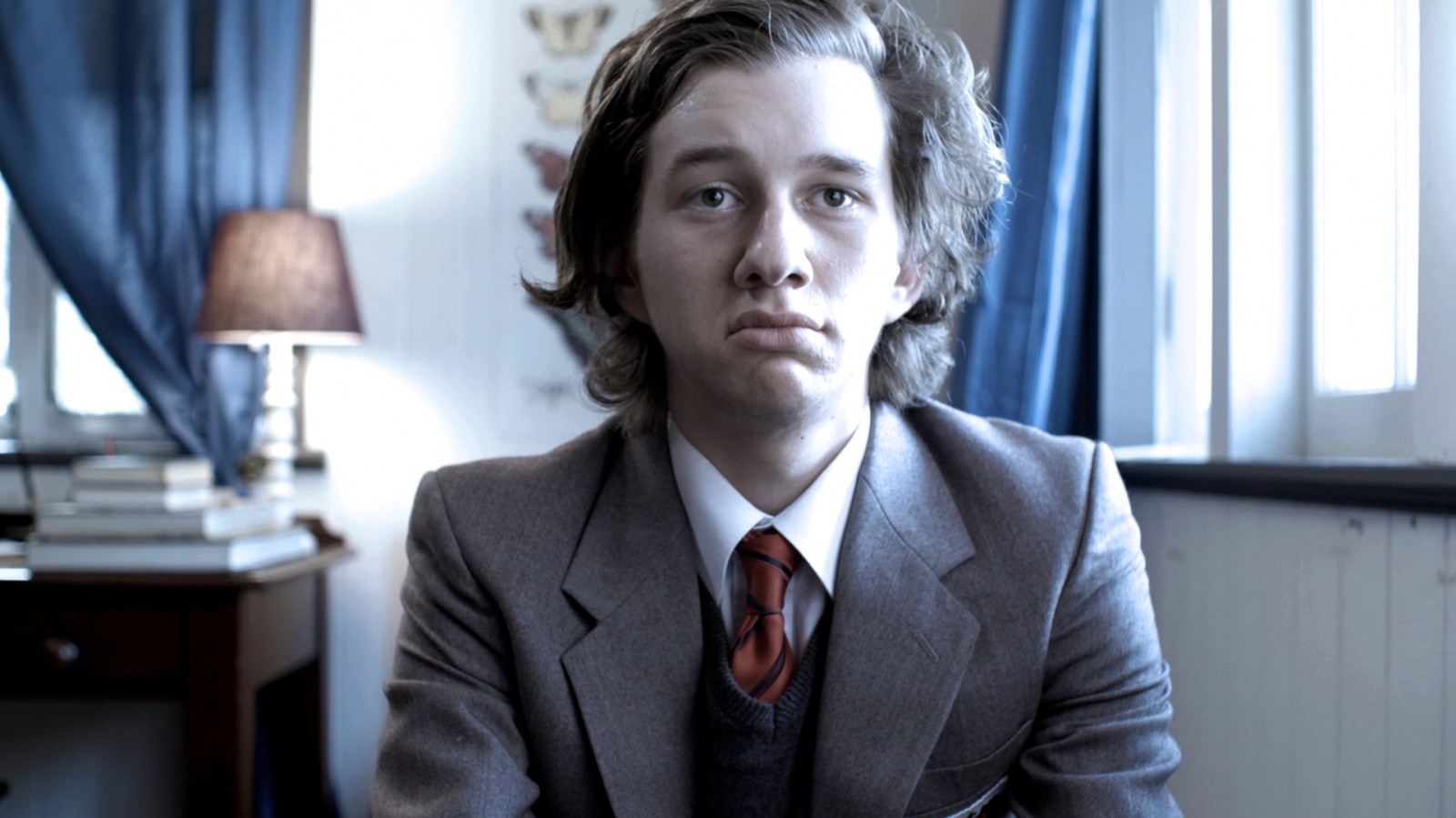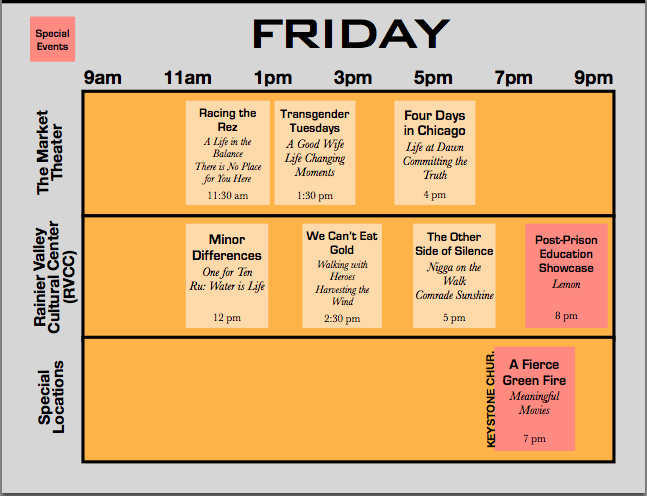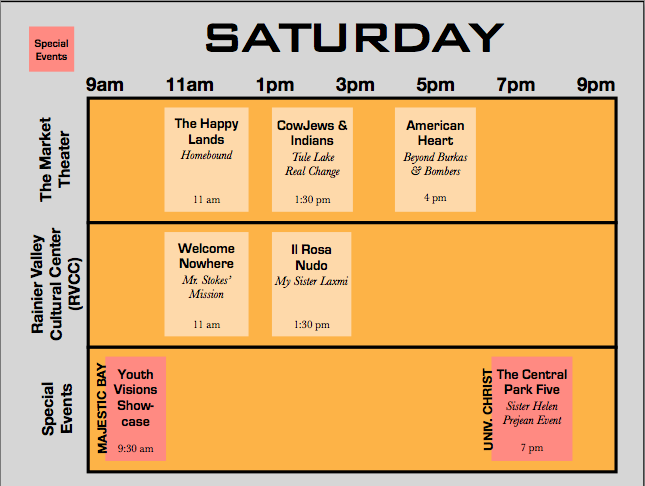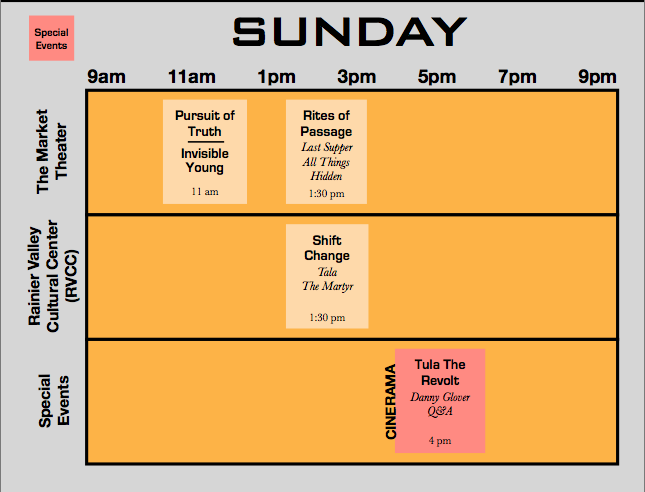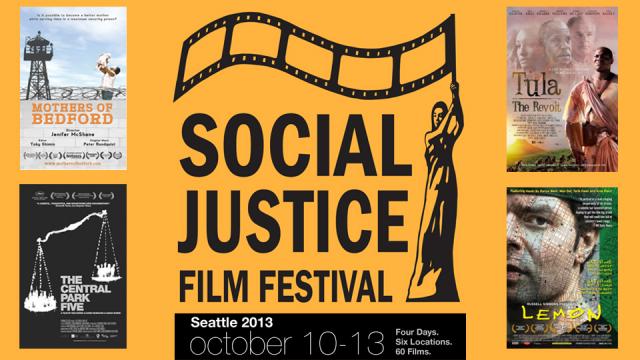
A beautifully composed shot. A person gazing at an object unseen. A swell of music, a plot twist, or just gripping storytelling. Whatever we recall about our favorite movies, most of us have experienced the incredible power of film: film changes lives. And this week in Seattle, the second Social Justice Film Festival hopes to combine that power while drawing a sharper focus on injustice and unfairness—and proposing new ways to make things right.
From October 10 to 13, the SJFF will be showcasing films that challenge societal structures across the globe through creative and new perspectives. The Seattle festival launched four years ago as a project to help prisoners. In this year's film lineup, SJFF's founding sponsor, Books to Prisoners — an all-volunteer Seattle organization that mails 15,000 packages of books and reading supplies to prisoners throughout the U.S. each year — has helped keep prisoner justice issues at the forefront.
But festival organizers dared to dream bigger in their second season, recruiting renowned justice advocates from around the country who will be appearing and speaking in conjunction with films that cover a wide range of social justice issues: racism, poverty, women's rights, environment, immigration, LGBT issues. And much more.
Featured events of the Seattle Social Justice Film Festival include:
Central Park Five, with Sister Helen Prejean. The author of "Dead Man Walking" will attend a screening of the Ken Burns documentary, which describes the experience of five Latino and black teenagers wrongfully convicted and imprisoned for the rape and murder of a white female jogger in New York City’s Central Park in 1989. Sister Helen will be speaking about the death penalty. Film screens October 12 at 7 p.m., University Christian Church (Watch trailer here.)
Tula The Revolt, with Danny Glover. Mr. Glover joins for the U.S. premiere of this feature film about a historical slave uprising in Curaçao. He will participate in a Q&A with director Jeroen Leinders. Film screens October 13 at 4 p.m., Cinerama (Watch trailer here.)
Mothers of Bedford, on Opening Night. The documentary follows five incarcerated women as they try to raise their children, and coincides with the 40th anniversary celebration of the Seattle non-profit Books to Prisoners. Opening night and film screening on October 10 at 7 p.m., The Market Theater (Watch trailer here.)
Youth Visions, a screening and awards ceremony for films made by young people, 21 and under, from the U.S. and abroad. Screens October 12 at 9:30 a.m., Majestic Bay Theatre.
Four Days in Chicago, a new documentary by two-time Oscar Award winner Haskell Wexler that portrays the Occupy movement’s protests against the 2012 NATO meeting in Chicago. Film screens on October 11 at 4pm, The Market Theater (Watch trailer here.)
Six films by Seattle filmmakers: Barzan, Invisible Young, Post-Prison Education Program, Real Change, Harvesting the Wind andWalking with Heroes.
An array of other films showing at the festival cover the following subjects: an electrifying, Tony Award-winning slam poet tries to overcome his background; a Midwestern health clinic valiantly keeps hope alive for its refugee patients; a portrait of impoverished Roma in Bulgaria portrayed in startlingly vivid colors; the bravery of an African woman who treks miles each day to bring water to her family; the "Pink Triangle" persecution and torture of gays in World War II Italy; a darkly satiric story about how people and governments make money selling drugs; how the homeless of Seattle got to be homeless; post-9/11 hysteria and how it ruined the lives of an Iraqi immigrant and his family; a social psychology experiment that shocked the world; the wrongful murder conviction of a wealthy black woman in Live Oak, Florida; and more.
The world may seem like a cauldron of strife and injustice. But film can, and does, change public policy and people's lives. Hopefully, new perspectives on social justice, provided on the big screen in Seattle, will do just that.
Anne Paxton is Director of the Social Justice Film Festival.
3 WAYS TO SHOW YOUR SUPPORT
- Log in to post comments

